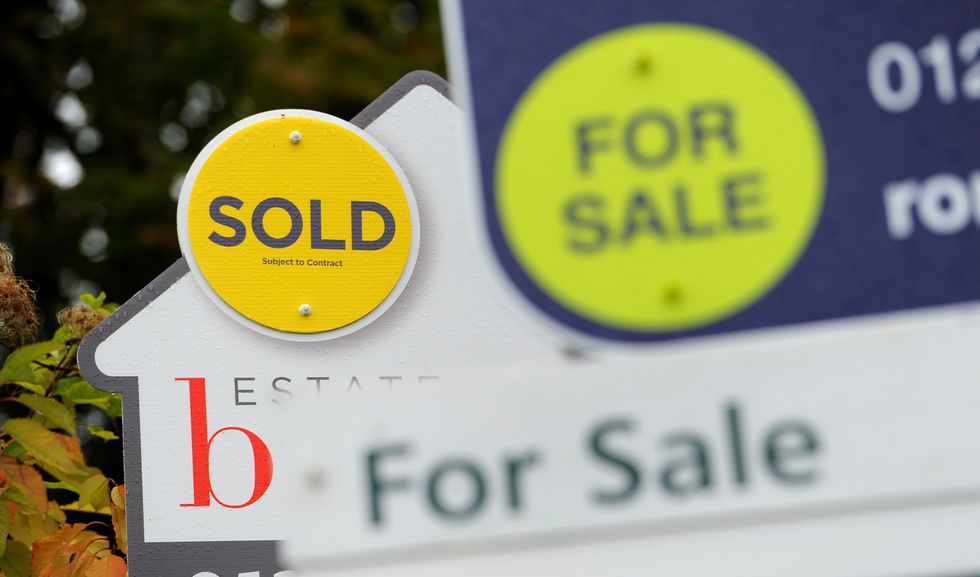Woman earning £50,000 fears 'I won't ever own a home' as average UK rent prices soar past £1,300
Average private rent prices in the UK increased to £1,310 in June 2024
Average private rent prices in the UK increased to £1,310 in June 2024, according to official figures
Don't Miss
Most Read
Trending on GB News
Despite earning higher than the average salary, many workers are finding it difficult to get their foot on the property ladder as rent prices remain high.
The latest official figures from the Office for National Statistics show that average UK private rents increased by 8.6 per cent in the 12 months to June 2024.
As rent prices increase, workers are spending over half their salary on their bills, leaving barely anything for house deposit savings.
Emma Harris, a software engineer from Birmingham earns £50,000 a year and said the cost of renting and bills takes up about two-thirds of her salary.
She fears she will never be able to purchase her own property.
Average house prices in Birmingham have hit £215,000, leaving her feeling "completely trapped" in her situation as she aims for a mortgage.

House prices across the UK have risen by 1.1 per cent in the year to April,
PAHarris told BBC: "I am not likely to ever own a house and it’s just depressing.
"I feel completely trapped in the situation I am in. The chances of me owning my own house are pretty much non-existent.
"I want to cry. I want to scream. I want to shout, and do various other things but none of them solve the issue - that I don't have the money to put away each month to scrape together the money for a deposit."
She said the prospect of raising money for a deposit caused "a few sleepless nights."
Rents inflation climbed to £1,301 (8.6 per cent) in England, £736 (8.5 per cent) in Wales and £957 (9.3 per cent) in Scotland in May. In Northern Ireland, it grew by 10.3 per cent in March.
In England, average rents rose by the highest amount in London, at 10.1 per cent. This was lower than the record-breaking 11.2 per cent reported two months ago, the highest annual inflation since data were first released in January 2006.
House prices across the UK have risen by 1.1 per cent in the year to April, with the average house price now standing at £281,000, making it even harder for those hoping to jump on the housing ladder.
The rise in house prices is especially pronounced in new-build homes, which saw a 15.3 per cent increase compared to a 1.3 per cent decrease in existing property prices.
Those who are forced to rent due to being unable to afford a deposit are feeling the squeeze.
To help the mortgage process, Harris wanted mortgage lenders to take account of her regular payment of rent when assessing her ability to make repayments.
The King's Speech last week confirmed the Government will bring forward a Renters Rights Bill. This legislation will include the ending of no-fault evictions (section 21) on renters.
This will likely include giving tenants the ability to challenge rent increases and the ending of bidding wars.
It will introduce the same decent homes standard that applies in the social housing sector and also ensure landlords don't discriminate against tenants in receipt of housing benefits or with pets or children.
Ben Twomey, chief executive, of the campaign group for private renters, Generation Rent, welcomed the new Government's plans to end no-fault evictions.
He said: "These reforms must therefore go further than the previous government planned, with real support for tenants whose landlord wants to sell or move back in to prevent homelessness.
"This includes more time to enjoy our homes without fearing eviction, and more notice and financial support if this happens. Similarly, empowering tenants to challenge rent increases won't work if we still end up with rents rising faster than our incomes."







